How To Get Vitamin C On Keto Diet
Micronutrients in the Keto Diet: The Definitive Guide (Infographic)
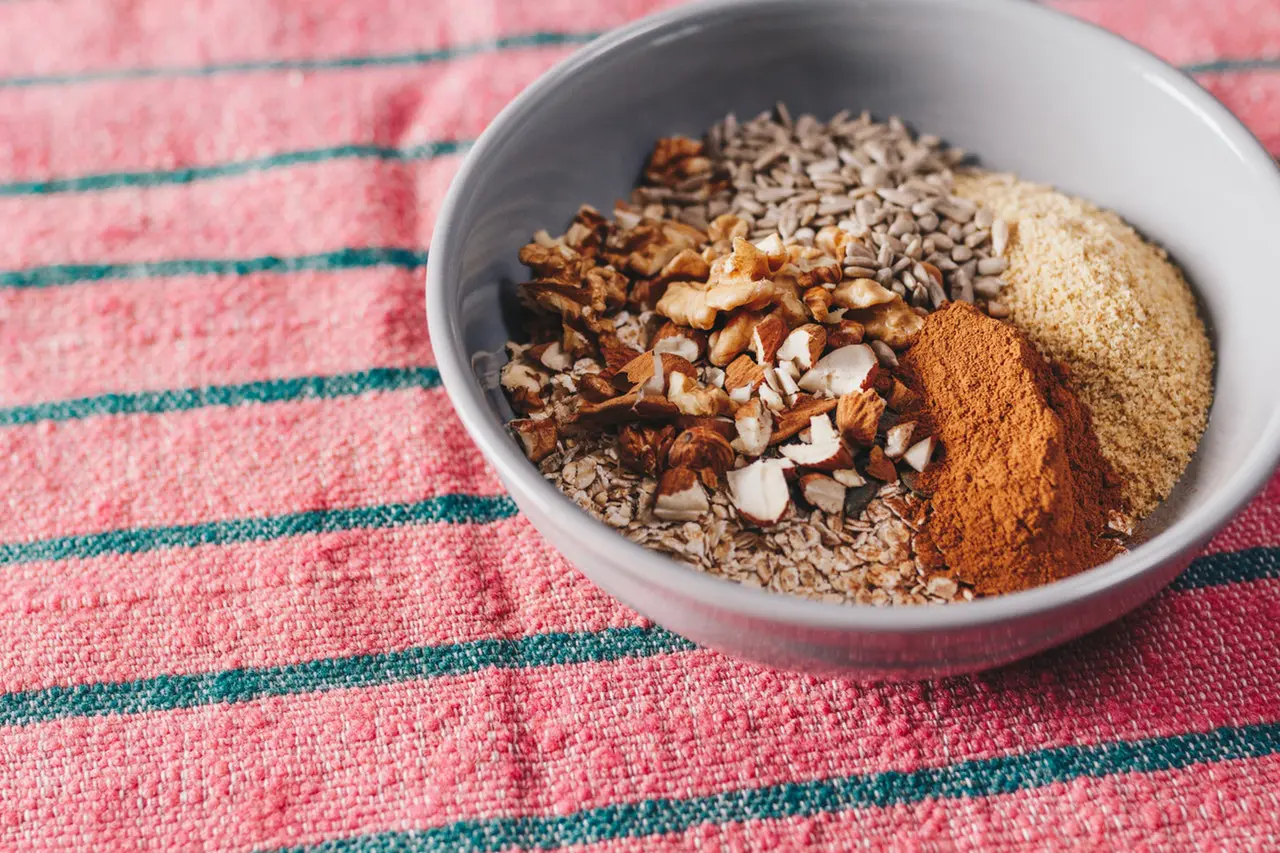
January 16, 2018
Share this post:
When excluding particular foods, food categories, or macronutrient groups from the diet, the opportunity for deficiency to present itself increases. Therefore, it is no surprise that pushback is due to lack of micronutrients in the keto diet. We are here to bust some of the myths surfacing around this topic.

A close examination of our foods and their contents strongly supports the consumption of animal products. In fact, removing animal products from the diet poses more of a risk to the development of nutrient deficiencies than removing carbohydrate-rich products. This is particularly true when looking beyond the nutrient content of the food to how the nutrients are absorbed and metabolized.
In general, meat and other animal products do not limit or may promote nutrient absorption, while plants can often contain antinutrients like phytates, oxalates, or glucosinolates which reduce nutrient absorption, nullifying any benefits associated with their contents.
So… what minerals and vitamins are lacking in a keto diet?

Vitamins in the Keto Diet
Vitamin A
Cruciferous vegetables (kale, spinach, broccoli), dairy (cheese), and meat (beef liver, fish) are rich in vitamin A. Interestingly, 1 ounce of beef liver would provide nearly 100% of the DV for vitamin A (a tablespoon of butter can also provide over 5%). Vitamin A is NOT lacking in a ketogenic diet.
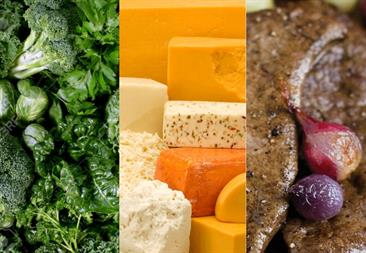
Vitamin B Complex
Here we say B "complex," as this group includes thiamin, riboflavin, niacin, pantothenic acid, pyridoxine, biotin, folate, and cobalamin. The B vitamin complex is an interesting one because we're told to eat grains and cereal to get B vitamins. Grains and cereal don't actually contain much B vitamins naturally – they're added in as supplements in a process called fortification. B12 (cobalamin) is actually not found in plant sources and can only be obtained from meat. As for the rest, a diet containing red meats, seafood, dairy, nuts, and seeds will meet all recommended intakes for the B vitamins. Vitamin B Complex is NOT lacking in the ketogenic diet.
Vitamin C in the Keto Diet
Its best known sources are the citrus fruits – definitely not in a ketogenic diet. While they are abundant in citrus fruits, red peppers actually take the cake, containing 158% DV per half cup. Green peppers also rank highly at 100% DV per half cup. Broccoli, brussels sprouts, spinach, cauliflower, and cabbage all contain ample amounts of Vitamin C. However, Vitamin C is not abundant in animal products. Therefore, a ketogenic dieter whom skimps on their vegetable intake is susceptible to a low Vitamin C intake. Vitamin C is POSSIBLY lacking in a ketogenic diet.
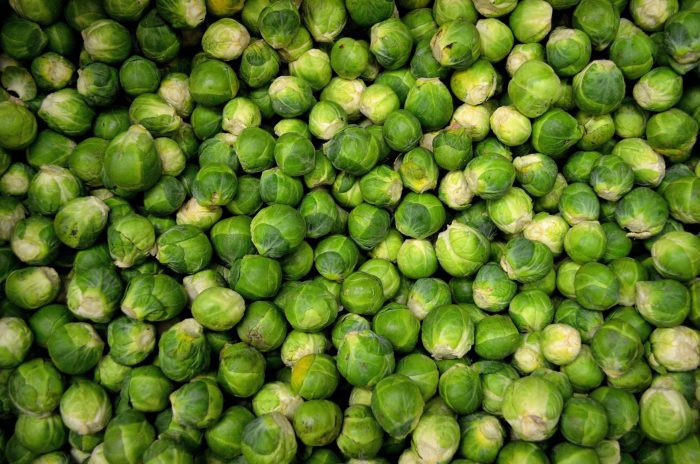
How to resolve Vitamin C deficiencies: by supplementing with ascorbic acid or increase consumption of the vegetables listed above.
Vitamin D
This is another interesting one. The RDA for Vitamin D is 600 IU (15 mcg), but some experts believe it should be double to quadruple that amount for optimal bone, endocrine, and organ health. This may be a contributing factor to the health benefits of a ketogenic diet, as plant sources (except for mushrooms) are devoid of Vitamin D. Vitamin D is NOT lacking in a ketogenic diet. In reality, keto- dieters are very likely better off than non-ketoers.
Vitamin E
Of all whole foods, nuts/legumes and seeds reign supreme for Vitamin E content. Spinach and broccoli are two of the most abundant vegetable sources as well, indicating that Vitamin E is NOT lacking in a ketogenic diet.
Vitamin K
Plants dominate Vitamin K. Luckily, the highest concentrations are found in cruciferous vegetables like collards and turnip greens, spinach, kale, and broccoli – all of which contain over 100% DV per serving. The keto-friendly, non-vegetable sources of Vitamin K are of relatively low concentrations, not containing over 20% per serving, but they include pine nuts (19% DV/ounce), chicken breast (17% DV/3 ounces), ground beef (8% DV/3 ounces), and olive oil (10% DV/TBSP). While it is unlikely, Vitamin K is POSSIBLY lacking in a ketogenic diet. However, an abundance of beef, chicken, and olive oil could remedy a deficiency if a keto-dieter forsakes vegetables (which they should not).
How to resolve deficiencies of Vitamin K: increase consumption of the vegetables listed above or supplement. Supplementing Vitamin K is not straight-forward, as bioavailability comes into play. There are 2 forms of Vitamin K – 1 and 2 or phylloquinone and menaquinone, respectively. Most of the diet consists of K1, but the menaquinone with 7 prenyl side chains (aka MK-7) appears to be the most efficacious for increasing blood levels of vitamin K.
Minerals in the Keto Diet
Calcium
Dairy! Calcium is NOT lacking in a ketogenic diet. However, this nutrient may need to be increased during adaptation to a ketogenic diet, as the diet can flush the body of electrolytes, causing cramping and malaise. For argument's sake, let's say a keto-dieter is also sensitive to dairy. This individual could obtain adequate amounts of calcium from fish (like salmon and sardines), kale, bok choy, and/or broccoli. Other than those, the only other efficient way using food is with calcium- fortified carbohydrate products like orange juice or cereals. If supplementing, it is efficient to take calcium itself or Calcium Beta-Hydroxybutyrate Supplementing can rapidly induce ketosis and can be used to accelerate the transition period between one's "normal" diet and the ketogenic diet or induce a deeper state of ketogenesis for those already adapted.

Chloride
Chloride is a major component of salt (table or sea), and therefore, it is not likely lacking in any diet. However, this nutrient may need to be increased during adaptation to a ketogenic diet, as the diet can flush the body of electrolytes, causing cramping and malaise.
Chromium
Chromium is not found in large quantities in very many foods. The most abundant food only contains 11 mcg per serving (half cup of broccoli), which equates to about one-third of daily needs, but there is a steep drop off after broccoli with grape juice, wheat muffins, and potatoes having 8, 4, and 3 mcg of chromium per serving, respectively. Although reports of chromium deficiency are rare, its scarcity in the diet makes it more likely that a ketogenic diet could produce a deficiency. Chromium is POSSIBLY lacking in a ketogenic diet.
How to resolve Chromium deficiencies – consume more broccoli or supplement. Chromium is easily excreted, so several small doses throughout the day are most effective, but the best form of chromium is yet to be adequately defined.
Copper
Copper is another nutrient very abundant in a ketogenic diet. Seafood, beef, seeds, legumes, nuts, dark chocolate, and green veggies lead the pack for copper content. Copper is NOT lacking in a ketogenic diet.
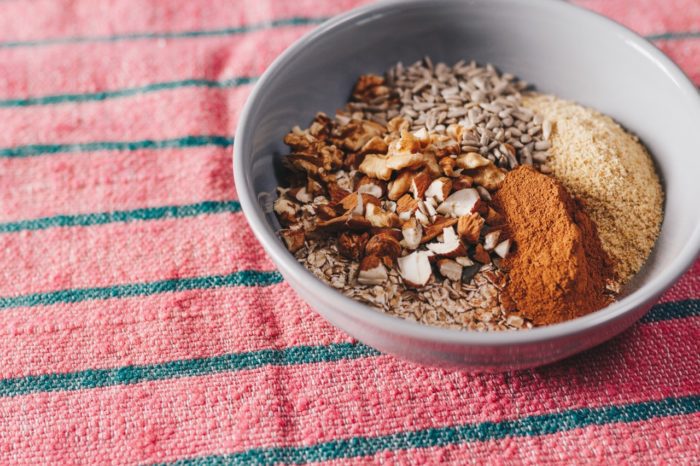
Fluoride
Fluoride is actually most abundant in water. There is also a high content in avocado, greens, and dairy. Fluoride is NOT lacking in a ketogenic diet.
Iodine
Iodine presents a case similar to that of Vitamin D, although less pronounced. Some believe its consumption should be greater for optimal health. Interestingly, seaweed can contain anywhere from 10-2,000% DV of iodine. Seafoods (such as the more typical fish, particularly white fish), dairy, and eggs are also rich in iodine. Iodine is NOT lacking in a ketogenic diet.
Iron
Iron is tricky because there is heme and non-heme iron. Essentially, heme iron is desired, because it is absorbed much better than non-heme iron. While plant sources may be high in iron, they contain non-heme iron as well as many other compounds, such as oxalates or phylates, which inhibit iron uptake. Animal sources, however, are rich in heme iron, and contain a "meat protein factor" which promotes iron absorption. Iron is NOT lacking in a ketogenic diet.
Magnesium
Here is another example of a nutrient with relatively low quantities in any single food item. However, magnesium content meets or exceeds 10% of DV in over 15 unique foods. Of these exist almonds (20%), spinach (20%), cashews (19%), peanuts (16%), black beans (15%), avocado (11%), and yogurt (11%). With lower amounts found in meats and seafoods, magnesium is NOT lacking in a ketogenic diet. However, this nutrient should be increased during adaptation to a ketogenic diet, as the diet can flush the body of electrolytes, causing cramping and malaise.
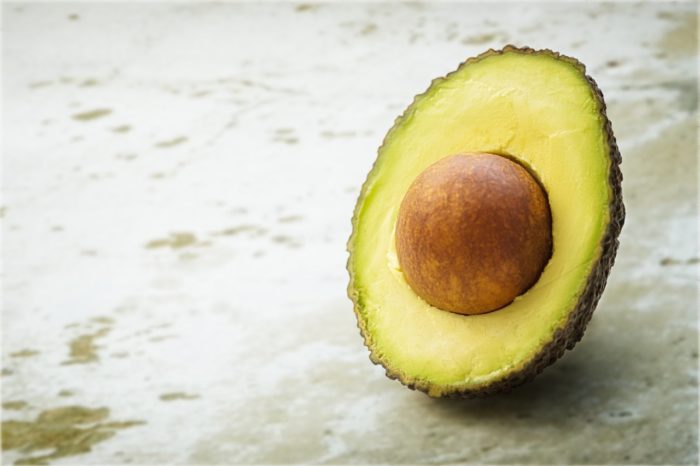
To resolve a potential deficiency in Magnesium, you can supplement with magnesium itself or Magnesium Beta-Hydroxybutyrate. Supplementing can rapidly induce ketosis and can be used to accelerate the transition period between one's "normal" diet and the ketogenic diet or induce a deeper state of ketogenesis for those already adapted.
Manganese
Manganese is similar to magnesium (in more than just the name!). They both have a +2 charge and can be used somewhat interchangeably in the body's chemical reactions/stabilizations. It is found in surprisingly large amounts in teas and spices, but also in seafood, nuts, seeds, and beans. Manganese is NOT lacking in a ketogenic diet.
Molybdenum
Here's one we don't hear about very much. This is probably because average Americans consume about double the RDA for molybdenum (~45mcg). However, animal products and vegetables are relatively low in the nutrient, but nuts, beans, and peas are some of the richest sources. Thus, a ketogenic diet is likely lower in molybdenum than a non-keto diet, but that might not be so bad. While molybdenum deficiencies have not been observed in any healthy individuals, overconsumption can promote copper excretion and increase oxidative stress. Collectively, molybdenum is NOT lacking in a ketogenic diet.
Phosphorus
Meats, dairy, nuts, seeds, and beans are all high in phosphorus. Phosphorus is NOT lacking in a ketogenic diet.
Potassium
It's found in high concentrations in meats, dairy, many keto-friendly vegetables, avocado, beans, and seafood. Potassium is NOT lacking in a ketogenic diet. However, this nutrient may need to be increased during adaptation to a ketogenic diet, as the diet can flush the body of electrolytes, causing cramping and malaise. To resolve this potential deficiency, you can supplement with potassium itself or Potassium Beta-Hydroxybutyrate. When supplementing with Calcium, Magnesium, Potassium and Sodium, you need to balance those minerals in these ratios 12:5:57:18, respectively. In other words, 1mg of Potassium is needed for every 0.21mg of Calcium, 0.09mg of Magnesium, 0.32mg of Sodium (reference: NIH).
Selenium
Each Brazil nut has about 100% DV of selenium. Yellowfin tuna ranks second with 131% DV in 3 ounces, and all of the other foods high in selenium are predominantly animal products. Selenium is NOT lacking in a ketogenic diet.
Sodium
Sodium is the other major component of salt, and it is not lacking in just about any diet. Although it was previously thought that sodium exacerbated cardiovascular disease, this is slowly being disproven (reference 1, reference 2). Sodium is NOT lacking in a ketogenic diet. However, much like the other electrolytes, sodium can be expelled due to the diuretic effect of ketogenic diet adaptation and may need to be increased during this time.
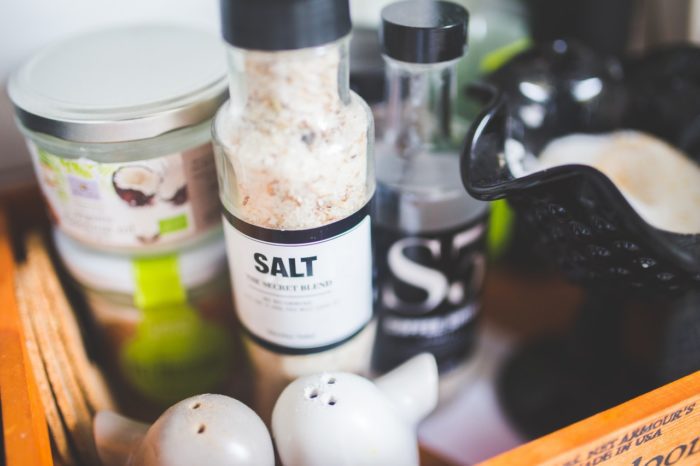
To resolve this potential deficiency, you can sprinkle table salt on your food, or supplement with Sodium Beta-Hydroxybutyrate. It is common to see people on ketogenic diets liberally applying salt to their food to combat higher rates of excretion. If supplementing you can rapidly induce ketosis and some use it to accelerate the transition period between one's "normal" diet and the ketogenic diet or induce a deeper state of ketogenesis for those already adapted.
Sulfur
Most sulfur comes from animal products (like eggs!). Moreover, the majority of sulfur-containing vegetables are keto-friendly as well. Sulfur is NOT lacking in a ketogenic diet.
Zinc
Again, meats and seafoods contain the most zinc followed by dairy, legumes, and nuts. Zinc is NOT lacking in a ketogenic diet.
Other Micronutrients in the Keto Diet
Omega 3 Fatty Acids
Omega 3 fatty acids should not be lacking in a ketogenic diet. By far and away, the richest source of omega 3's are oily fish. Second, third, and fourth place belong to seeds, nuts, and beans. The fish sources contain the better sources of omega 3's, EPA and DHA, while the latter 3 contain the inferior ALA. Beef (particularly grass fed beef) and eggs also contain smaller amounts of omega 3's (mostly ALA, though). Thus, theomega 3's are NOT lacking in a ketogenic diet. However, eating larger amounts of the pro-inflammatory omega 6 fatty acids can still negatively affect health, and without adequate omega 3 consumption to counter-balance, a ketogenic diet can quickly spur an unfavorable omega 3 to omega 6 ratio. Read this post to learn more about fat as fuel in sports performance.
Fiber
The recommendation for fiber intake is 25-30g/day not from supplements. The latter portion of this statement is particularly revealing. Fiber in and of itself is useful, but not as healthful as we're lead to believe. Rather, fiber is an indicator of plant consumption since it is not found in animal products. Hence, high fiber equates to high plant consumption equates to less "bad" food, but its unique value does not live up to its hype. …but it is useful.
Fiber ferments into fat by human gut bacteria, so any health benefits of fiber are due in large part to its conversion to fat (specifically, short-chain fatty acids). Is it lacking? Even 30g of fiber per day is possible with a little conscious effort. Staple ketogenic foods like avocados, nuts, and seeds are quite high in fiber. Add in green vegetables and one is easily over 20g of fiber per day. The last 10g are where effort comes in. Incorporating "specialty" foods like cacao, flax, chia, hemp, and low-carb flours (i.e. flax, almond, and coconut) can quickly and easily provide 10-20g of fiber per day. Fiber is NOT lacking in a ketogenic diet …if you do it right.
Supplementing with Beta-Hydroxybutyrate

Now that you know all about micronutrients in a keto diet, now we can discuss the goals of a ketogenic diet. It is the ketone body that is most elevated when nutritional ketosis is successfully induced and carries its own therapeutic properties. Betahydroxybutyrate is not stable on its own, so in supplement form, it is most commonly found in powders bound to the minerals Calcium, Magnesium, Sodium or Potassium.
For those supplementing with Calcium, Magnesium, Sodium, or Potassium, it is common to see a combination of three or four to ensure balanced mineral intake. Supplements accelerate fat adaptation and reduces the symptoms of "keto flu" for those who are new to the diet. For those already keto-adapted, supplements can be used as a carbohydrate-alternative fuel source before, during, or after exercise, and these can quickly return one to a state of ketosis when it would just be rude to refuse a slice of birthday cake.
Are you formulating for the ketogenic or low-carb health markets? Contact us now.
Sources:
National Institute of Health, Daily Values
National Institute of Health, Recommended Intake
Share this post:
How To Get Vitamin C On Keto Diet
Source: https://compoundsolutions.com/micronutrients-in-the-ketogenic-diet/

Posting Komentar